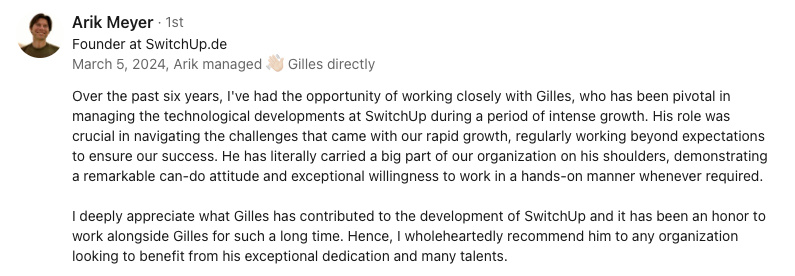Abstract:
The article discusses how European startups are leveraging Robotic Process Automation (RPA) to enhance customer service beyond traditional back-office tasks, thereby gaining a competitive edge. RPA is employed to automate routine customer interactions, allowing human staff to focus on complex issues and ensuring consistent, personalized engagement. Examples include Company A's use of RPA for data analysis to tailor communications and Company B's integration of RPA with chatbots for 24/7 support. The integration of RPA with CRM systems improves data accuracy and service personalization, while its real-time data processing enhances agility in responding to customer needs. By automating feedback collection and anticipating customer needs, RPA fosters proactive service, reducing wait times and improving customer satisfaction. The blend of automation with human oversight ensures quality service, with transparent communication about automation building trust. Ultimately, RPA offers startups a means to differentiate themselves in the market, enhancing service delivery and customer loyalty through efficient and personalized interactions.
In the competitive business world, customer satisfaction is key. European startups are using automation">Robotic Process Automation (RPA) not just for back-office tasks, but to enhance customer service. RPA helps make customer interactions smoother and more personalized, which is crucial for staying ahead in the market.
Maximizing Customer Engagement with RPA
RPA is transforming how European startups handle customer interactions. It's not just about automating tasks anymore. Startups are using RPA to boost customer engagement and satisfaction by automating routine interactions.
Automating Customer Touchpoints
RPA automates routine customer interactions, streamlining communication for startups. This allows human staff to focus on complex issues while RPA handles repetitive tasks like inquiries and scheduling. It speeds up responses and ensures consistent service. From my experience, integrating RPA into customer communications can significantly enhance the overall customer experience.
Personalized and Timely Customer Engagement
Startups are using RPA to personalize and accelerate customer interactions. For example:
- Company A uses RPA to analyze customer data and tailor communications.
- Company B employs RPA with chatbots for 24/7 support without extra staffing costs.
These methods demonstrate how startups are leveraging RPA to connect with customers and remain competitive.
Transition to Customer-Centric Applications
RPA is evolving from back-office tasks to improving direct customer interactions. Startups need to adopt technologies that focus on customer satisfaction. In tech hubs I've been part of, I've seen RPA being integrated into customer support to provide more responsive and personalized service, boosting customer satisfaction.
Integrating RPA with Customer Support
RPA isn't just about automating tasks; it's about integrating customer service channels for consistent service across all interactions. Reflecting on my experience, I've noticed how RPA optimizes resources by reducing the workload on human employees, allowing them to focus on more complex customer needs.
Enhancing Multi-Channel Support
RPA helps startups offer a seamless experience across chat, email, and social media. This reduces friction when customers switch between channels and helps build long-term relationships.
Real-Time Data Processing for Agility
RPA's real-time data processing boosts a startup's agility in customer service. It quickly gathers and analyzes feedback, allowing immediate strategy adjustments to meet customer needs effectively.
Integrating RPA with CRM Systems
RPA integration with CRM systems enhances data accuracy and service personalization. By automating data management, startups reduce errors and ensure staff have up-to-date information, enabling tailored customer interactions.
Enhancing Customer Experience with RPA
Delivering consistent and personalized experiences is vital for startups aiming to improve satisfaction. RPA helps maintain service uniformity while tailoring interactions.
Consistency and Personalization
RPA reduces errors and ensures consistent service, building customer trust. By integrating AI, RPA personalizes interactions based on customer behavior, enhancing satisfaction.
Automating Customer Feedback Collection
Automating feedback collection with RPA helps startups efficiently gather and analyze data, informing personalized service strategies. This rapid analysis leads to quicker service improvements.
Proactive Customer Service
RPA allows startups to predict and address customer needs proactively, improving service and satisfaction.
Anticipating Customer Needs
RPA helps predict issues, allowing proactive service that boosts satisfaction. This foresight prevents small problems from becoming big complaints, strengthening customer confidence.
Successful Case Studies
European startups have effectively used RPA to enhance customer service. For instance, a startup in Germany reduced wait times by 30% with RPA, while another in France improved troubleshooting processes, increasing positive feedback and retention rates.
Balancing Automation with Personal Touch
Combining RPA with human empathy is crucial for effective customer service.
Strategies for Human Oversight
Human oversight in automated processes ensures quality service and manages complex interactions requiring empathy. This blend of automation and human intervention enhances customer connections.
Customizing Automation for Customer Needs
Customized automation tailors services to meet diverse preferences. Transparent communication about automation fosters trust and engagement.
Competitive Advantage Through Enhanced Service Delivery
Startups can gain a competitive edge by using RPA to improve customer service.
Leveraging RPA for Market Differentiation
RPA helps startups stand out by providing fast, reliable service. This differentiation attracts and retains customers, building brand loyalty.
Measuring Success with RPA
Measuring RPA success with metrics like CSAT and NPS helps startups track improvements in service efficiency and quality, guiding informed decision-making.
RPA is revolutionizing customer service in European startups, moving beyond basic tasks to deliver exceptional experiences. By automating interactions, startups free up staff for complex queries and ensure consistent service. Personalized engagement enhances satisfaction and loyalty. Integrating RPA with CRM systems and using proactive strategies lead to better response times and customer retention. Consider how these insights could elevate your company's customer interactions.
You might be interested by these articles:
- Robotic Process Automation Implementation
- Maximizing Efficiency with RPA
- Streamlining Workflows with RPA





